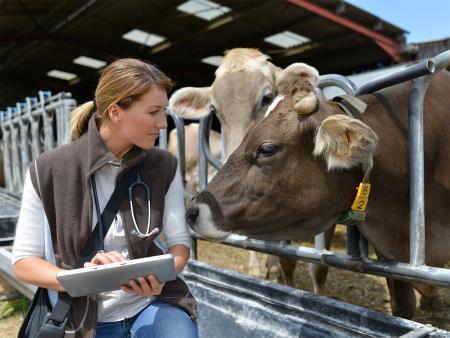Explore Veterinary Medicine
Post-baccalaureate degree: DVM
Image

Veterinarians provide medical care for pets, domestic food animals, zoo animals, and wild animals. Part of their activities are also providing for the health of the human population by controlling animal diseases such as rabies and mad cow disease. In addition they inspect our meats, fish, and milk to keep these foods safe for us.
See also: Academic and Career Information for Veterinary Medicine (PDF)
On this page:
Minimum Prerequisites for Admission
The following prerequisites must be completed prior to matriculation in a veterinary medicine program:
- baccalaureate degree from an accredited institution
- each program has its own prerequisites: check specific school for prerequisites details
- general course prerequisites:
- general biology with lab, one year
- biochemistry, one course
- general chemistry with lab, one year
- organic chemistry with lab, one year
- general physics with lab, one year
- English, one year
- college mathematics, one year
- anatomy and physiology
- animal physiology
- cell biology
- genetics
- microbiology
- molecular biology
- veterinary-related experience through internship and/or externship, minimum 300 hours
Tests Needed
- Graduate Record Examination (GRE) or Medical College Admission Test (MCAT)





